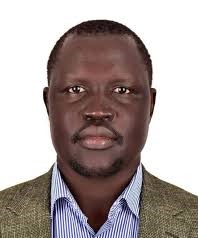“When a criminal is detained, it is always a necessary stand against a repeat of history written in blood.”
Get it right: Dr. Riek Machar Teny’s name is written in the darkest chapters of our history, from the Bor massacre in 1991 to the recent bloodshed in Nasir. His detention, which has now lasted five months, should not be mistaken for a petty political grudge.
It is an act of national security and a necessary stance for justice. As Gen. Kuol Manyang Juuk rightly stated to the African Union Peace and Security Council, his arrest is a criminal case connected to the deaths of soldiers and innocent civilians, as well as the disruption of the 2018 Peace Agreement. Signing the agreement does not guarantee that a crime committed during peacetime cannot be punished, and if something went wrong, rejuvenating the dialogue with bloodshed is against the established rules.
In the interest of justice, the narrative must be clear: some individuals’ records, particularly Dr. Riek Machar’s, speak so loudly of violence that ignoring them invites history to repeat itself.
In the history of South Sudan, Dr. Riek Machar Teny is not an ordinary political rival. He is a man whose reputation is soaked in the blood of innocent civilians and whose name induces memories of massacres and betrayals. His political strategies have crumbled the country’s economy and divided the citizens along ethnic lines. The Bor massacre of 1991 is one of those horrors that stand as a haunting reminder in South Sudanese memories.
The continued stay of citizens in protection sites across Upper Nile and Central Equatoria, along with calculated military offensives and cycles of rebellion, paints a grim picture of a leader whose tireless fight for power has continually submerged the country in the profuse blood of its innocent citizens.
When Gen. Kuol Manyang Juuk stated that the detention of Dr. Riek Machar Teny is “a criminal matter, not political,” he was not merely spinning words; he was speaking from the perspective of someone who has fought, bled, and witnessed the true cost of rebellion.
The violence in Nasir County, which annihilated an entire brigade, is not an abstract accusation; it is the latest instance in a long series of destabilizing acts of murder. A man with Dr. Riek Machar Teny’s history does not deserve blind political sympathy; he deserves the full weight of justice.
In essence, justice must remain justice. South Sudan’s laws are not merely decorative; they mandate that suspects be presented before a competent court of law within 24 hours and prohibit indefinite detention without judicial oversight.
If Dr. Riek Machar Teny is guilty, let the evidence be made transparent for both the nation and the world to see. The trial should serve as a public declaration that South Sudan is committed to holding even its most dangerous individuals accountable, not simply due to rivalries, but because they are criminals.
The SPLM-IO’s Hon. Daniel Juol Nhomngek’s assertion that Dr. Riek Machar Teny and other senior SPLM-IO detentions are a government conspiracy undermines the intelligence of the South Sudanese people. His words are disrespectful to the widows of the Bor massacre, the orphans of the senseless war in 2013, and the displaced citizens of Malakal. His statements imply that political slogans can erase history. What he fails to recognize is that no partisan rhetoric can obscure the fact that Dr. Riek Machar Teny’s journey has been marked by the suffering of his fellow countrymen and women.
The government of President Salva Kiir Mayardit, guided by experienced figures like Gen. Kuol Manyang Juuk, has a unique opportunity to validate its commitment to decisiveness and legality alike. The road to the 2026 elections and the establishment of a unified national army will not be advanced by pampering or appeasing repeat offenders; it will be reinforced by upholding the principle that states that no individual is above the law.
South Sudan has buried too many of its sons and daughters under the weight of ambition-fueled wars, instigated by a leader whose political strategy relies exclusively on armed confrontation. If conducted firmly, transparently, and lawfully, detaining Dr. Riek Machar Teny would represent a significant step toward justice and would be seen as an act of national self-defense.
In this situation, which involves Dr. Riek Machar Teny, a known serial offender, justice and politics are not enemies. In fact, justice would be the political path that will save our country.
Till then, yours truly, Mr. Teetotaler!
The writer, Dr. Sunday de John, holds an MBA and Bachelor of Medicine and Bachelor of Surgery (MBChB) from the University of Nairobi, Faculty of Business and Management Sciences and Faculty of Medicine, respectively. He can be reached via drsundayalong4@gmail.com
The views expressed in ‘opinion’ articles published by Radio Tamazuj are solely those of the writer. The veracity of any claims made is the responsibility of the author, not Radio Tamazuj.




